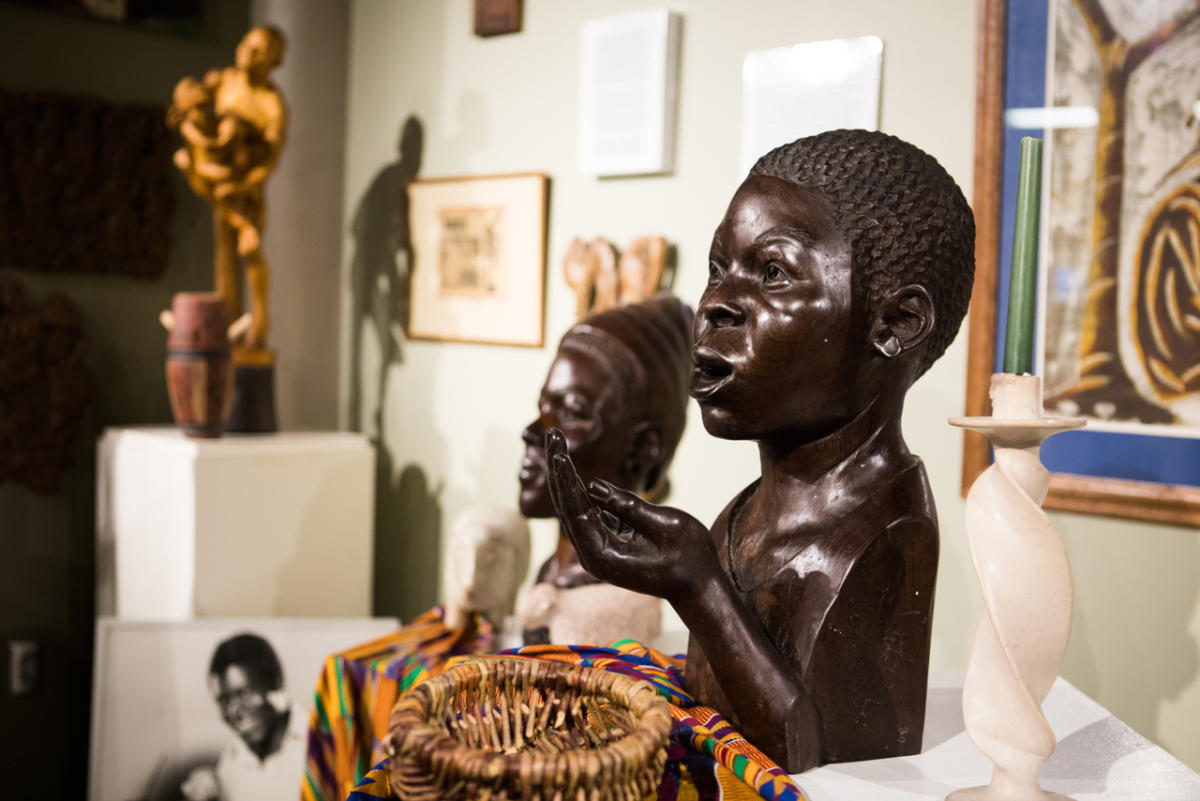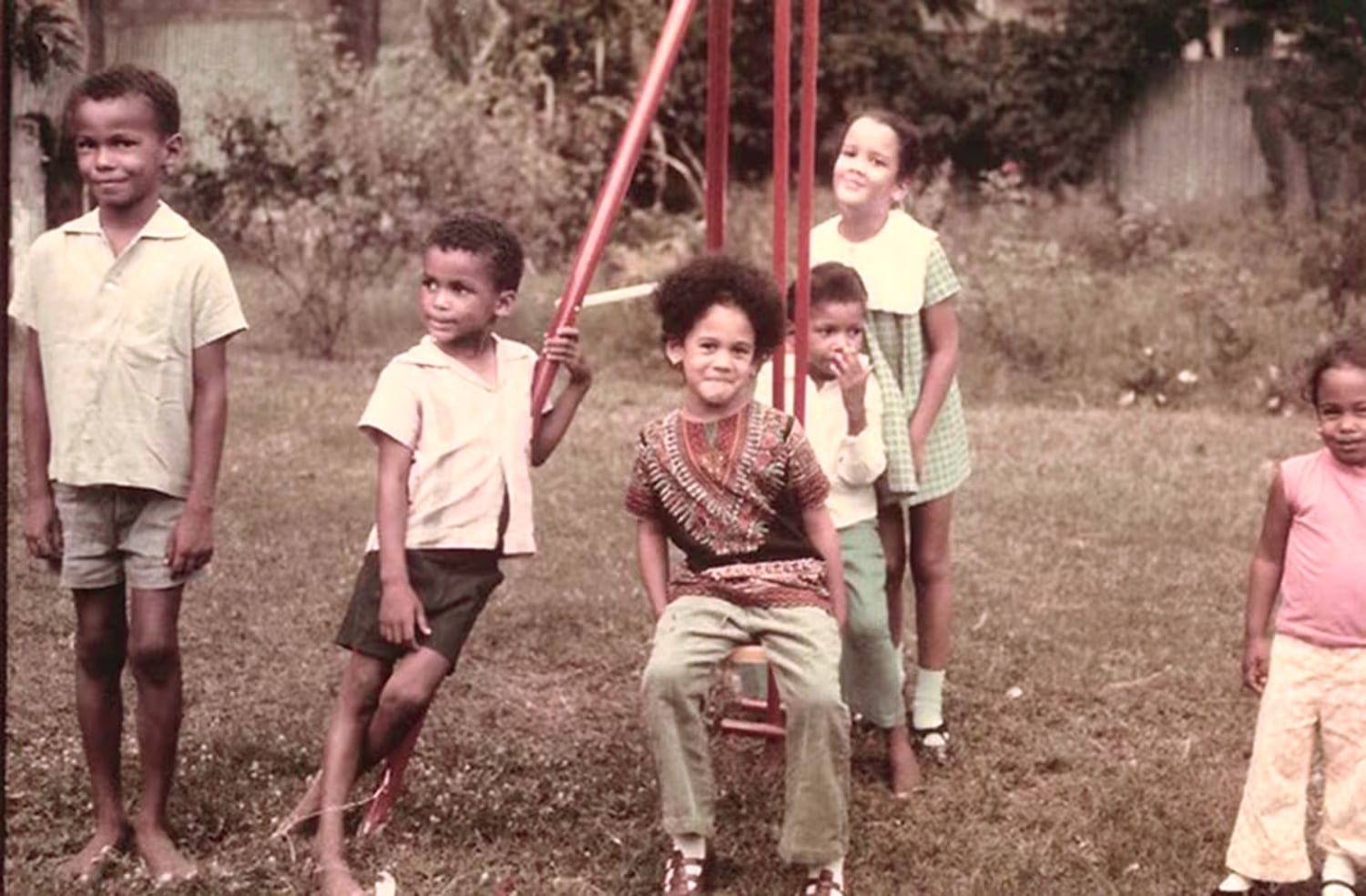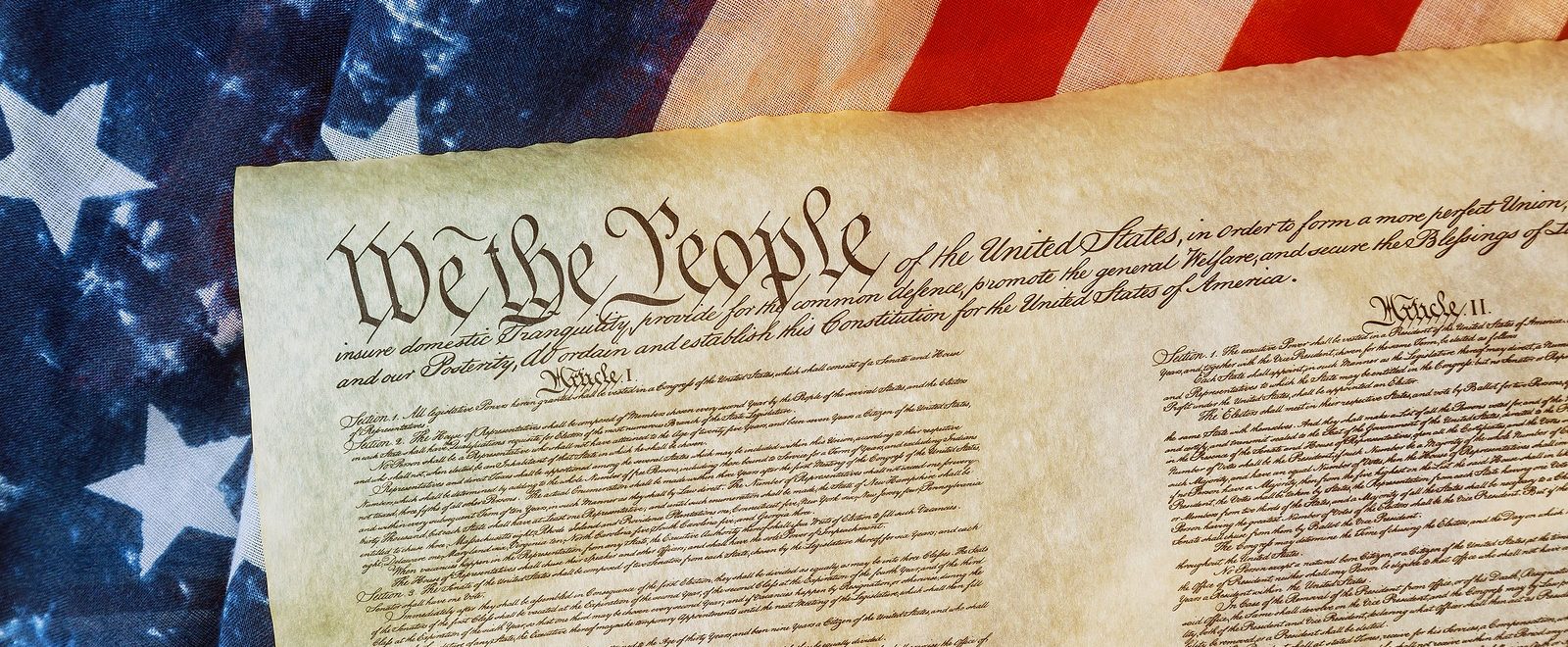- BlackVoter.Org
- Posts
- BLACKVOTER.ORG #112
BLACKVOTER.ORG #112
Empowering Awareness: Stay Grounded With Blackvoter.org Newsletter!Empowering voices, driving change. 🗳️ Advocate for justice, equity, and representation at BlackVoter.org. Join us as we harness the power of the ballot to shape a future that reflects our values and aspirations. #BlackVoter #EmpowerChange Publish Time



In this opinion article, Jamelle Bouie discusses how Donald Trump has once again resorted to using birtherism as a political tactic. Bouie explains that birtherism refers to the false claim that Barack Obama was not born in the United States and therefore ineligible to serve as president.
Trump became famous on the political right for championing this conspiracy theory and questioning Obama's legitimacy. Now, as he prepares for a potential third presidential run, Trump is using a similar strategy against his current opponent, Kamala Harris.
Trump has insinuated that Harris, who is of Jamaican and Indian heritage, is not truly African American. Bouie refutes this claim, citing Harris's personal and professional history, which includes identifying with both her Black and South Asian heritage.
Overall, Bouie argues that Trump's use of birtherism is both false and offensive, but it showcases the central role it played in Trump's own political rise.
In this episode of Market Mondays Medium, hosts Rashad Bilal and Ian Dunlap sit down with special guest Don Peebles, a prominent real estate developer, to discuss his personal interactions and professional relationship with Donald Trump. The conversation dives into the controversial topic of Trump's perceived racism, with Peebles offering a nuanced view.
He argues that Trump is not more racist than Joe Biden, highlighting the devastating impact of historical policies on black communities that were largely attributed to Biden's legislative history. Peebles shares his personal experiences with Trump, stating that he was always treated with respect and that Trump showed interest in supporting black entrepreneurs and gaining black voters.
The discussion also touches on other aspects such as Trump's refusal to apologize for the Central Park Five incident and the role of economic opportunity in uplifting black communities. Ultimately, the conversation emphasizes the need for African Americans to hold all political figures accountable, devoid of emotional distractions.
Tune in to gain a deeper understanding of race, politics, and economic policy through the experienced lens of Don Peebles.
Vice President Kamala Harris supports a reparations bill that would create an independent commission to study and consider a national apology and proposal for reparations for the institution of slavery and racial discrimination against African-Americans. The bill, which Harris cosponsored when she was a senator, also aims to address laws that disproportionately and negatively affect African-Americans.
Although the bill does not specify which federal laws could be impacted, a reparations task force in California may provide some clues. The California task force called for monetary payouts to black residents, as well as sweeping changes to the criminal code, including decriminalizing public urination and letting those arrested for public indecency sue the state for damages.
Harris's support for reparations aligns with her broader far-left positions on criminal justice reform and public safety.


In a recent incident, CNN labeled black voters who questioned Kamala Harris' "blackness" as "low-information voters," drawing criticism for hypocrisy. The network sent a white reporter to a black barbershop to ask black people about their thoughts on Harris, assuming that they would support her due to her race.
However, many individuals in the shop expressed doubts about Harris' black identity, given her mixed heritage. Instead of taking these opinions seriously, CNN's host dismissed them as the views of "low-information voters.
" This incident reveals the media's tendency to push their own agenda and dismiss anyone who disagrees with them. It also highlights the hypocrisy of CNN branding black voters as "low-information," especially when they were asked specifically about the racial background of a candidate.
This incident reeks of both hypocrisy and racism.

Immerse yourself in the rich cultural heritage of African Americans at the Harrison Museum of African American Culture in Roanoke, Virginia. This acclaimed museum offers a comprehensive look at the cultural, artistic, and historical achievements of African Americans in the Roanoke Valley and beyond.
With rotating exhibits that highlight local and national figures, significant events, and cultural movements, the Harrison Museum provides an engaging and educational experience for visitors. In addition to exhibits, the museum also offers educational programs, lectures, and community events that foster a deeper understanding of African American history.
Located in the heart of Roanoke, the museum is a must-visit for anyone interested in exploring the dynamic stories and legacies that shape American culture. Experience impactful narratives and engage with thought-provoking exhibits that reflect the spirit and resilience of the African American community at the Harrison Museum of African American Culture.


A trial has begun in a federal court in Mississippi over a lawsuit that seeks to increase the number of Black justices on the state's highest court. Mississippi currently has only one Black justice serving on its Supreme Court, despite having the largest percentage of Black residents in the United States.
The lawsuit argues that the current district lines for the Supreme Court, which have been unchanged since 1987, dilute the voting strength of Black Mississippians and make it less likely for Black candidates to be elected. The suit was filed by several civil rights organizations on behalf of four Black residents of Mississippi.
State attorneys argue that the current district lines are fair and that the Voting Rights Act guarantees an equal opportunity to participate, not a guarantee that a preferred candidate will win every election. The trial takes place amidst ongoing discussions about voting rights and representation in the United States.

A recent survey conducted by Data for Progress reveals that voters find recent actions and statements made by Republicans to be strange and extreme. The survey asked likely voters whether they thought discussions about politicians such as Kamala Harris, Donald Trump, Joe Biden, and JD Vance on social media were mostly positive or negative.
While respondents reported positive discussions about Harris, they noted predominantly negative posts about Trump and Vance. The survey also presented respondents with a list of actions taken by Republicans and asked whether they found them weird or normal.
The majority of voters found these actions, including insulting women without children, banning library books, and monitoring pregnancies, to be strange. Furthermore, voters perceive Republicans as extreme, creepy, and off-putting, while Democrats are seen as normal in comparison.
The findings suggest that voters align with Democrats when describing Republicans as weird or extreme, particularly due to recent controversial statements and actions.

Former President Donald Trump's questioning of Vice President Kamala Harris's race demonstrates a lack of understanding of code-switching and its importance in politics. Code-switching refers to the practice of adjusting one's speech style and expression to optimize relatability and cultural resonance.
Harris, as a person of color, has had to develop this skill to navigate the corridors of power and gain acceptance. Trump's suggestion that Harris is inauthentic for embracing all aspects of her heritage reflects a belief that whiteness is the default in politics.
However, code-switching is a common practice among politicians of color who use it to increase their influence and gain power in spaces where they historically haven't had it. Trump's comments reveal a failure to recognize and appreciate the cultural complexity and diversity of America.

In this article, Pastor Corey Brooks expresses his strong dislike for identity politics. He states that identity politics has done nothing for his community on the South Side of Chicago and only serves to emphasize and stress blackness without addressing the underlying issues faced by black individuals.
He criticizes the idea that skin color should determine who people vote for and highlights the need to judge politicians based on their qualifications and actions rather than their race. Furthermore, he condemns the trend of "White Women for Kamala Harris" and "White Dudes for Harris," arguing that such movements perpetuate racism and do not focus on the greater humanity.
Pastor Brooks believes that identity politics divides people based on race instead of uniting them to find solutions to common problems. He urges everyone to look beyond race and focus on developing oneself, creating opportunities, and embracing principles of merit, responsibility, and accountability.

In an op-ed for NBC News, author Staceyann Chin argues that President Trump's attack on Vice President Kamala Harris during the National Association of Black Journalists convention was an attack on people of mixed racial heritage like herself. Chin, who is both Black and Asian, describes her experience of being accepted as both in Jamaica and then being forced to choose between the two racial identities upon arriving in the US.
She emphasizes that Harris, who is of Black and Indian heritage, has proudly identified as Black and has been accepted by the Black community. Chin criticizes Trump for his attempts to delegitimize Harris's racial identity and for tapping into the harmful belief in a racial binary.
She concludes that Trump is unable to accept the changing demographics and diversity of the United States and should not be elected to lead the country.

Former US President Donald Trump recently made a controversial speech in which he said that Christians would not have to vote anymore if he was elected. This statement has raised concerns about the future of American democracy, as revoking the right to vote is a common tactic used by authoritarian regimes.
The article explores the history of voting rights in the US and the struggles that various groups have faced to secure this basic liberty. It highlights the importance of voting and the fight for freedom, particularly for Black Baptist women who have been at the forefront of the movement for justice and equality.
The article also mentions Kamala Harris, a Black Baptist woman who made history as the first female vice president of the United States. Her faith and belief in justice for all have been heavily influenced by the Black Baptist church and Martin Luther King Jr.
Overall, the article emphasizes the importance of voting and the ongoing fight for freedom and social justice.

Alabama has consistently low voter turnout, often ranking near the bottom in the nation. The state had the fifth-lowest voter turnout in the country during the 2022 midterm elections, with just over a third of the voting eligible population casting a ballot.
Experts attribute this low turnout to a history of voter suppression, lack of access to the ballot box, and noncompetitive races. Alabama has a long history of denying citizens access to voting, particularly Black voters, with barriers such as literacy tests, poll taxes, and felony voting laws.
Restrictive voter laws and a lack of competitive elections also contribute to voter apathy. The state's restrictive absentee ballot laws and limited early voting options also make it harder for people to participate in elections.
The ACLU of Alabama has launched Project MOVE (Making Our Voices Echo) to reduce barriers to voter turnout and increase voter engagement in the state.

Vice President Kamala Harris has selected Minnesota Governor Tim Walz as her running mate for the 2024 election, according to anonymous sources from the Associated Press. Walz is a military veteran and union supporter who has helped advance a progressive agenda in Minnesota.
He has a background in education, having been a high school social studies teacher and football coach before pursuing a career in politics. Walz has also shown an ability to connect with conservative voters, winning a congressional race in a rural district in 2006.
The selection of Walz is seen as an effort by Harris to strengthen the Democratic ticket in the crucial Midwestern states.

As the November 2024 election approaches, the support of Black American voters is shifting, causing concerns for the Democratic Party. Polls have shown a significant change in the sentiments of Black voters, who have historically been a reliable base for Democrats.
The unexpected exit of President Joe Biden from the race has only heightened these concerns, as many Black voters expressed dissatisfaction with his leadership. Figures from the Republican Party have made deliberate efforts to reach out to this pivotal demographic, recognizing their influence in swing states.
The shifts in support among younger Black voters are particularly alarming for Democrats, as they are becoming increasingly uncertain about their allegiance to the party. Factors such as a lack of engagement and loyalty, feeling disconnected from the issues, and disillusionment with the status quo have contributed to this shift.
On the other hand, the Republican Party's outreach efforts have gained ground, with polls showing increasing support among younger Black voters for former President Donald Trump. The Democratic Party now faces the challenge of mobilizing and engaging these voters to ensure their support in the upcoming election.
Failure to do so could result in lower turnout rates or even support for the Republicans, potentially leading to a contingent election for the Democrats.
